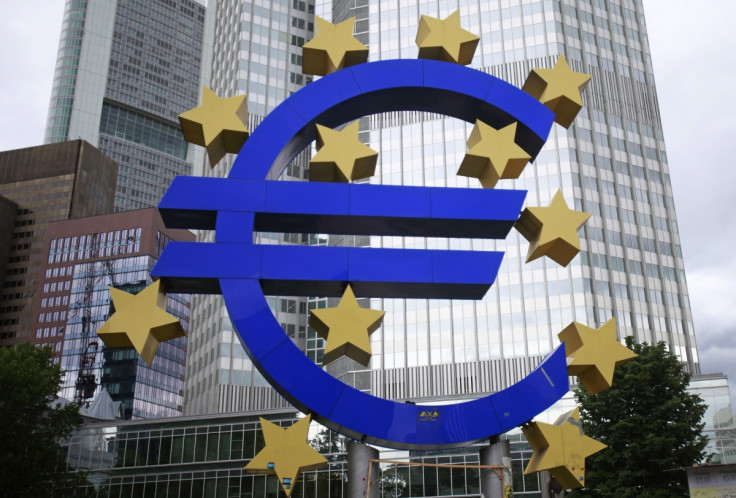Eurozone Recovery Grinds to Halt as German and French Economies Stumble

The eurozone has been plunged once more into uncertainty after it was confirmed that Germany, which is its largest economy, contracted last quarter, with second largest France reporting growth of just 0.1%.
Germany's economy contracted by 0.2% from April to June. After earlier figures showed that Italy was pushed into recession after contracting at the same level over the quarter, analysts are speculating as to whether the year-long relative recovery in the Eurozone has come to an end.
"Overall, the numbers reinforce our view that the eurozone economy remains too weak either to tackle the periphery's debt problems or to eliminate the dangers of deflation. As such, we still believe that the European Central Bank needs to implement further policy action – probably in the form of full-scale quantitative easing – to try to bring the euro down and re-ignite the recovery," said Capital Economics chief European economist Jonathan Loynes in a note.
France is now likely to miss its budget deficit target, set by Brussels, in 2014. The country had been working towards a reduction to 3.8% of GDP. Annual GDP growth has been forecast at 0.5%, a climbdown from the earlier prediction of 1%, the French Finance Minister Michel Sapin wrote in Le Monde.
French consumption fell by 0.3% in July, with unemployment languishing at a record high of 11%.
This week, the London-based Centre for Economics and Business Research (CEBR) think-tank said that France was the biggest threat to the eurozone economy.
A report authored by CEBR economist Danae Kyriakopoulou said: "Whilst too much noise has been made about the PIIGS (Portugal, Italy, Ireland, Greece, and Spain) and their slow progress in enacting reforms, there is also a French elephant in the eurozone room that no one dares to speak about. Huge challenges lie ahead for France in terms of consolidating its public finances, improving damaged competitiveness, and reducing high structural unemployment."
The German contraction – the first since the end of 2012 – is further cause for concern. Unusually for Europe's powerhouse trade economy, net trade was a drag on German GDP, with imports outstripping exports.
Germany's central stats authority Destatis has suggested that, as with the US economy earlier in the year, weather effects may have contributed to the weakness.
Across the single-currency bloc, growth is either anaemic, or non-existent. Austria grew at 0.2%, the Netherlands at 0.5% and Spain and Slovakia both grew at 0.6%. Romania contracted by 1%, with the Czech Republic stagnating at zero growth.
The overall growth picture (a Eurostat due to be announced later today – August 14) is bleak. "This suggests that overall eurozone GDP either stagnated or even fell. The consensus forecast was for a 0.1% expansion," Loynes said.
© Copyright IBTimes 2025. All rights reserved.






















